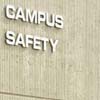Court Rules That Data From Automated License Plate Reader Searches Are Not Discoverable Under The Public Records Act

July 2015
Number 35
An appellate court recently held that data generated from automated license plate recognition systems are exempt from disclosure under the Public Records Act. The Public Records Act exempts certain types of records from disclosure, including records of law enforcement investigations under Government Code section 6254, subdivision (f). In American Civil Liberties Union Foundation of Southern California et al. v. Superior Court (2015) 2015 Cal.App. Lexis 378, the court examined whether the functions performed by the Automatic License Plate Reader (ALPR) system can properly be characterized as records of law enforcement investigations under Government Code section 6254, subdivision (f). The appellate court held that, because section 6254, subdivision (f) does not distinguish between investigations to determine if a crime has been or is about to be committed and those that are undertaken once criminal conduct is apparent, the automated license plate recognition system data are records generated in the course of performing investigations into suspected crimes and thus fall under the Public Records Act exemption.
For more than a decade, the Los Angeles Police Department (LAPD) and Los Angeles Sheriff's Department (LASD) have used ALPR technology to check license plates to determine whether a vehicle is stolen or otherwise wanted in connection with a crime. The ALPR systems consist of specialized cameras mounted to patrol cars or stationary structures that scan license plates in their immediate vicinity and record the license plate number together with the time and location of the scan. At virtually the same time, the ALPR system checks every license plate number it scans against a list of known license plates associated with suspected crimes (a "hot list"). If the system registers a hit, patrol officers are immediately notified that a hot list vehicle is in their vicinity.
The American Civil Liberties Union Foundation of Southern California and Electronic Frontier Foundation (collectively "ACLU") sent a California Public Records Act (CPRA) request for the policies and guidelines concerning the use of ALPR technology, as well as all ALPR plate scan data collected during a single week in August 2012. LAPD and LASD agreed to produce the policies and guidelines, but refused to disclose the week's worth of ALPR data, citing the law enforcement investigative records exemption under the CPRA and privacy concerns. The ACLU sought to compel production of the ALPR data under the CPRA; however, the trial court denied their request. The trial court concluded that the records were exempt as records of law enforcement investigations under section 6254, subdivision (f).
On review, the appellate court affirmed the trial court's order denying the ACLU's request for production of the ALPR data. The appellate court concluded that the ALPR system's core function is to investigate suspected crimes, and the records generated in the course of performing that function are records of these investigations. The ALPR data, therefore, is exempt from disclosure pursuant to section 6254, subdivision (f). The court relied on prior precedent from the California Supreme Court holding that section 6254, subdivision (f) does not distinguish between investigations to determine if a crime has been or is about to be committed and those that are undertaken once criminal conduct is apparent.
The court further held that the scans performed by the ALPR system are precipitated by specific criminal investigations; namely, the investigations that produced the "hot list" of license plate numbers associated with suspected crimes. The ALPR system replicates a type of investigation that officers routinely perform. This process constitutes an investigation, even though it is automated.
Finally, the court determined that retention of the ALPR data is irrelevant to whether the records qualify under section 6254, subdivision (f) as an investigative record. Although the LAPD and LASD retain the records in a database for years after the initial hot list check, nothing in section 6254, subdivision (f) places a time limit on the exemption for investigative files. As a result, the LAPD and LASD met their burden of establishing that the requested ALPR records were exempt from disclosure, pursuant to section 6254, subdivision (f), as investigative records.
At this time, it is unclear whether the ACLU will appeal this decision to the California Supreme Court. If they do, and review is granted, public agencies will not be able to rely on the decision until the California Supreme Court decides the matter.
For further information about this case, please contact one of our nine offices located statewide. You can also visit our website, follow us on Facebook or Twitter, or download our Client News Brief App.
Number 35
An appellate court recently held that data generated from automated license plate recognition systems are exempt from disclosure under the Public Records Act. The Public Records Act exempts certain types of records from disclosure, including records of law enforcement investigations under Government Code section 6254, subdivision (f). In American Civil Liberties Union Foundation of Southern California et al. v. Superior Court (2015) 2015 Cal.App. Lexis 378, the court examined whether the functions performed by the Automatic License Plate Reader (ALPR) system can properly be characterized as records of law enforcement investigations under Government Code section 6254, subdivision (f). The appellate court held that, because section 6254, subdivision (f) does not distinguish between investigations to determine if a crime has been or is about to be committed and those that are undertaken once criminal conduct is apparent, the automated license plate recognition system data are records generated in the course of performing investigations into suspected crimes and thus fall under the Public Records Act exemption.
For more than a decade, the Los Angeles Police Department (LAPD) and Los Angeles Sheriff's Department (LASD) have used ALPR technology to check license plates to determine whether a vehicle is stolen or otherwise wanted in connection with a crime. The ALPR systems consist of specialized cameras mounted to patrol cars or stationary structures that scan license plates in their immediate vicinity and record the license plate number together with the time and location of the scan. At virtually the same time, the ALPR system checks every license plate number it scans against a list of known license plates associated with suspected crimes (a "hot list"). If the system registers a hit, patrol officers are immediately notified that a hot list vehicle is in their vicinity.
The American Civil Liberties Union Foundation of Southern California and Electronic Frontier Foundation (collectively "ACLU") sent a California Public Records Act (CPRA) request for the policies and guidelines concerning the use of ALPR technology, as well as all ALPR plate scan data collected during a single week in August 2012. LAPD and LASD agreed to produce the policies and guidelines, but refused to disclose the week's worth of ALPR data, citing the law enforcement investigative records exemption under the CPRA and privacy concerns. The ACLU sought to compel production of the ALPR data under the CPRA; however, the trial court denied their request. The trial court concluded that the records were exempt as records of law enforcement investigations under section 6254, subdivision (f).
On review, the appellate court affirmed the trial court's order denying the ACLU's request for production of the ALPR data. The appellate court concluded that the ALPR system's core function is to investigate suspected crimes, and the records generated in the course of performing that function are records of these investigations. The ALPR data, therefore, is exempt from disclosure pursuant to section 6254, subdivision (f). The court relied on prior precedent from the California Supreme Court holding that section 6254, subdivision (f) does not distinguish between investigations to determine if a crime has been or is about to be committed and those that are undertaken once criminal conduct is apparent.
The court further held that the scans performed by the ALPR system are precipitated by specific criminal investigations; namely, the investigations that produced the "hot list" of license plate numbers associated with suspected crimes. The ALPR system replicates a type of investigation that officers routinely perform. This process constitutes an investigation, even though it is automated.
Finally, the court determined that retention of the ALPR data is irrelevant to whether the records qualify under section 6254, subdivision (f) as an investigative record. Although the LAPD and LASD retain the records in a database for years after the initial hot list check, nothing in section 6254, subdivision (f) places a time limit on the exemption for investigative files. As a result, the LAPD and LASD met their burden of establishing that the requested ALPR records were exempt from disclosure, pursuant to section 6254, subdivision (f), as investigative records.
At this time, it is unclear whether the ACLU will appeal this decision to the California Supreme Court. If they do, and review is granted, public agencies will not be able to rely on the decision until the California Supreme Court decides the matter.
For further information about this case, please contact one of our nine offices located statewide. You can also visit our website, follow us on Facebook or Twitter, or download our Client News Brief App.
Disclaimer: As the information contained herein is necessarily general, its application to a particular set of facts and circumstances may vary. For this reason, this News Brief does not constitute legal advice. We recommend that you consult with your counsel prior to acting on the information contained herein.





